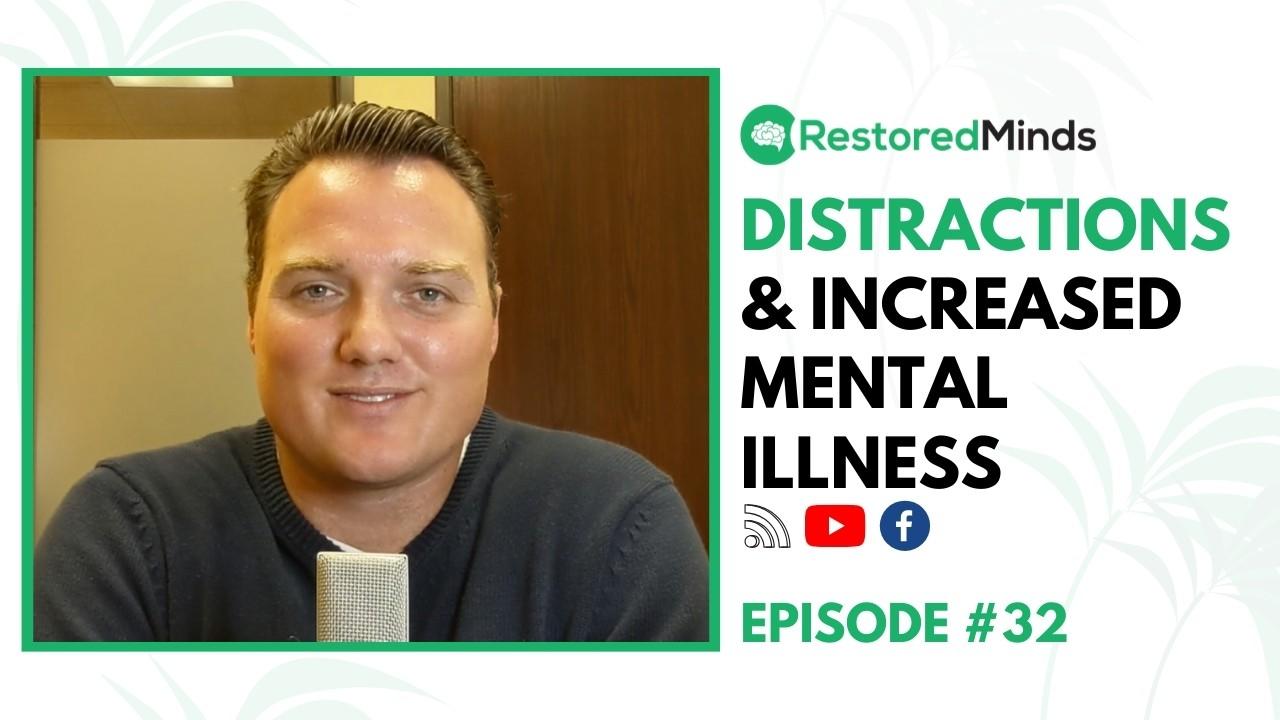Distractions & Increased Mental Illness
May 13, 2020
Understanding the Impact of COVID-19 on Mental Health
The COVID-19 pandemic has undoubtedly disrupted the lives of millions, leading to unprecedented levels of stress and uncertainty. Recent research highlights some startling statistics during this crisis. For instance, suicide hotline calls have risen by over 800% from normal numbers, and there's been a notable increase in domestic abuse cases, child abuse, and overall mental health issues like anxiety and depression.
Mental health issues have a ripple effect, starting from the individual and extending to family units, communities, and society as a whole. Addressing these issues on both a micro and macro level is crucial.
The Role of Distractions
Distractions have played an integral role in managing everyday stress for many of us. Whether it's sports, social activities, or simply staying busy with work, these distractions have often masked underlying mental health issues. With the pandemic forcing many of us into social isolation and removing these distractions, unresolved issues are beginning to surface.
It's essential to recognize how much we rely on distractions. From constantly checking social media to binge-watching TV shows, these activities can sometimes serve as coping mechanisms. When these distractions are taken away, we're left to confront our emotions and mental state.
Managing Mental Health During Isolation
Managing mental health during social isolation is challenging but vital. Here are some strategies to help:
-
Limit Consumption of Negative News and Social Media:
-
Constant exposure to negative news can exacerbate feelings of anxiety and panic. It's important to be aware of what we consume. Try limiting news intake and focusing on credible sources.
-
-
Practice Mindfulness and Self-Reflection:
-
Being attuned to your emotions and what's arising within you is crucial. Practices like meditation, journaling, and mindfulness can help manage stress and anxiety.
-
-
Seek Professional Help:
-
Don't hesitate to seek professional help if you're struggling. Counseling and therapy can provide effective strategies for managing mental health during these times.
-
-
Connect with Others:
-
Humans are inherently social beings. Maintaining connection with friends and family, even through virtual means, can significantly boost mental well-being. Simple phone calls, Zoom meetings, or even handwritten letters can make a big difference.
-
Taking Care of Your Soul
Beyond mental health, it's essential to nurture your inner being or soul. Engaging in activities that bring joy and peace, such as playing sports, gardening, or spending time in nature, can rejuvenate your spirit.
During the pandemic, I found playing golf with friends to be incredibly uplifting. It wasn't about the game itself but the connection and camaraderie that replenished my soul. Engaging in social activities, even if they're virtual, can provide a much-needed respite from isolation.
Special Acknowledgment: Mother's Day
Before we wrap up, I want to extend a heartfelt Happy Mother's Day to all the incredible mothers out there. Your unwavering dedication and hard work do not go unnoticed. We appreciate everything you do, and your role is more important now than ever.
Conclusion
In summary, the COVID-19 pandemic poses significant challenges to mental health, but by addressing distractions and focusing on individual well-being, we can navigate these tough times. It's essential to look after yourself and connect with others, even if it's through virtual means.


